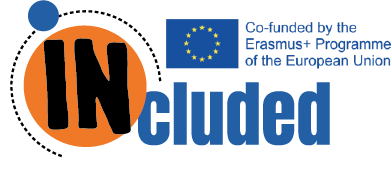Partners_new
 Merseyside Expanding Horizons is an NGO that works with people who experience isolation and social exclusion in their communities.
The Management committee, staff and volunteers at Merseyside Expanding Horizons share a vision of: A socially inclusive society in which all individuals can achieve their potential.
The activity of MEH is underpinned by four core values that determine and inform the projects that MEH undertakes and how it does the work that it does.
We have extensive experience of supporting people with multiple barriers and complex needs. Our tailored interventions make positive and lasting changes to the lives of our service users enabling them to broaden their life choices and achieve their personal goals.
MEH’s core values are:
- INCLUSION
We recognise that everyone has something to contribute, embracing their individual talents and skills and empowering them to reach their potential.
- INTEGRITY
We are trustworthy and competent in the work that we do, so that people have justifiable confidence in us.
- INSPIRATION
We aspire to lead, empower and enable people to break new ground, pioneering improvement in social inclusion.
- COLLABORATION
We develop and work within partnerships which build on everyone's strengths and engage in open dialogue in pursuit of positive social change.
Our multi-skilled delivery team is drawn from a diverse background and includes, careers advice, adult education, health and wellbeing, social and psychology, research, intercultural dialogue, business start-up and the private sector and equality and diversity, and is underpinned by sound project and financial management. A delivery team that combines professional skills with lived experiences.
Description
Merseyside Expanding Horizons is an NGO that works with people who experience isolation and social exclusion in their communities.
The Management committee, staff and volunteers at Merseyside Expanding Horizons share a vision of: A socially inclusive society in which all individuals can achieve their potential.
The activity of MEH is underpinned by four core values that determine and inform the projects that MEH undertakes and how it does the work that it does.
We have extensive experience of supporting people with multiple barriers and complex needs. Our tailored interventions make positive and lasting changes to the lives of our service users enabling them to broaden their life choices and achieve their personal goals.
MEH’s core values are:
- INCLUSION
We recognise that everyone has something to contribute, embracing their individual talents and skills and empowering them to reach their potential.
- INTEGRITY
We are trustworthy and competent in the work that we do, so that people have justifiable confidence in us.
- INSPIRATION
We aspire to lead, empower and enable people to break new ground, pioneering improvement in social inclusion.
- COLLABORATION
We develop and work within partnerships which build on everyone's strengths and engage in open dialogue in pursuit of positive social change.
Our multi-skilled delivery team is drawn from a diverse background and includes, careers advice, adult education, health and wellbeing, social and psychology, research, intercultural dialogue, business start-up and the private sector and equality and diversity, and is underpinned by sound project and financial management. A delivery team that combines professional skills with lived experiences.
Description  La Xixa Teatre Association is a non-profit organization founded in 2010 that aims to research, develop and multiply educational and theatrical tools as a means for social transformation. We believe that education at all ages is the key for social change towards a world with equal opportunities. Our activities are aimed towards the following topics:
• School Education, Early School Leaving, Prevention of Risk Behaviour among Youth;
• Intercultural Communication, Racism, Xenophobia, Social Inclusion and Integration;
• Gender, Equality Policies, and Sexual Diversity;
• Peace Culture and Co-existence, Active Citizenship, Civic Engagement, and Local Development.
The mission of La Xixa is to facilitate the creation of spaces for empowerment through Participatory Methodologies, Process Oriented Psychology and Theatre of the Oppressed to generate processes of individual and collective transformation in contexts of social vulnerability. Participatory Methodologies allow a group with diverse interests to acquire an ever-greater role in the analysis of their own reality and decision-making, thus all agents become crucial actors in their own development. Process Oriented Psychology focuses on developing a state of consciousness; i.e. helping individuals and groups to create awareness on how they perceive and live their experiences, and gives them tools to learn to change their approach. Theatre of the Oppressed Theatre (TO) puts theatre at the service of education. We conduct workshops for various groups, training for trainers and artistic actions at a local and international level. We are a multi-disciplinary and multicultural group of collaborators, trained in the field of social sciences, pedagogy and arts. The diversity within our team enriches our social and creative work, and that keeps us in permanent training and learning.
La Xixa Teatre Association is a non-profit organization founded in 2010 that aims to research, develop and multiply educational and theatrical tools as a means for social transformation. We believe that education at all ages is the key for social change towards a world with equal opportunities. Our activities are aimed towards the following topics:
• School Education, Early School Leaving, Prevention of Risk Behaviour among Youth;
• Intercultural Communication, Racism, Xenophobia, Social Inclusion and Integration;
• Gender, Equality Policies, and Sexual Diversity;
• Peace Culture and Co-existence, Active Citizenship, Civic Engagement, and Local Development.
The mission of La Xixa is to facilitate the creation of spaces for empowerment through Participatory Methodologies, Process Oriented Psychology and Theatre of the Oppressed to generate processes of individual and collective transformation in contexts of social vulnerability. Participatory Methodologies allow a group with diverse interests to acquire an ever-greater role in the analysis of their own reality and decision-making, thus all agents become crucial actors in their own development. Process Oriented Psychology focuses on developing a state of consciousness; i.e. helping individuals and groups to create awareness on how they perceive and live their experiences, and gives them tools to learn to change their approach. Theatre of the Oppressed Theatre (TO) puts theatre at the service of education. We conduct workshops for various groups, training for trainers and artistic actions at a local and international level. We are a multi-disciplinary and multicultural group of collaborators, trained in the field of social sciences, pedagogy and arts. The diversity within our team enriches our social and creative work, and that keeps us in permanent training and learning.
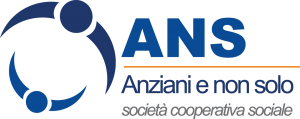 Anziani e Non Solo is a non-profit organization working since 2004 in the field of social innovation, with a specific focus on management of projects and realization of services and products in the field of welfare and social inclusion.
The activities carried out by ANS concern:
– Training and support to family carers, informal and formal carers
– Active ageing, intergenerational activities and support to frail and dependent elderly
– Prevention of gender based violence, elder abuse and discrimination
– Fight against poverty, support to employability and to social inclusion of disadvantaged groups
Concerning informal carers specifically, ANS offers training opportunities (both via e-learning and workshops), counselling services, support to labour (re)insertion, peer-support groups and runs an online community dedicated to informal carers.
ANS has developed a number of research projects focusing on carers, and its advocacy activities led to the approval of the first Italian Regional Law regarding the recognition of the role of carers.
To raise awareness on the role and needs of carers, ANS organizes yearly initiatives to celebrate the Carers Day.
Since 2012 we have been working on the topic of young carers through research activities, training for professionals and organization of workshops for young carers themselves.
ANS is member of the European network on informal carers Eurocarers, as well as of the European Network of organizations working with families COFACE.
Anziani e Non Solo is a non-profit organization working since 2004 in the field of social innovation, with a specific focus on management of projects and realization of services and products in the field of welfare and social inclusion.
The activities carried out by ANS concern:
– Training and support to family carers, informal and formal carers
– Active ageing, intergenerational activities and support to frail and dependent elderly
– Prevention of gender based violence, elder abuse and discrimination
– Fight against poverty, support to employability and to social inclusion of disadvantaged groups
Concerning informal carers specifically, ANS offers training opportunities (both via e-learning and workshops), counselling services, support to labour (re)insertion, peer-support groups and runs an online community dedicated to informal carers.
ANS has developed a number of research projects focusing on carers, and its advocacy activities led to the approval of the first Italian Regional Law regarding the recognition of the role of carers.
To raise awareness on the role and needs of carers, ANS organizes yearly initiatives to celebrate the Carers Day.
Since 2012 we have been working on the topic of young carers through research activities, training for professionals and organization of workshops for young carers themselves.
ANS is member of the European network on informal carers Eurocarers, as well as of the European Network of organizations working with families COFACE.
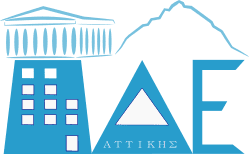 The Regional Directorate for Primary and Secondary Education of Attica (RDPSEA) is responsible for the coordination, the supervision and the implementation of educational policy in the region of Attica, involving around 55.000 active teachers. At the same time, it contributes to the shaping of educational policy, tailoring it to match the specific requirements of the region. The Regional Education Director, from his position in the administrative chain, monitors, coordinates, controls and supervises the work of the Directors of Primary and Secondary Education, who are responsible for 3.776 school units.
The total number of staff of the RDPSEA is 70, paid from Ministry of Education and Religious Affairs. The RDPSEA includes: a) the Independent Directorate for Administrative, Financial and Pedagogical Support and b) 14 Primary and Secondary Education Directorates. The Independent Directorate for Administrative, Financial and Pedagogical Support, supervising and coordinating the work of each of the fourteen directorates of Primary and Secondary Education, consists of the following departments: Department A’ of Administrative Affairs, Department B’ of Economic Affairs, Department C’ of Human Resources, Department D’ of Informatics and New Technologies and a Legal Support Office.
Other decentralized services of the Ministry of Education and Religious Affairs under the Regional Education Directorate are: six Regional Centres for Educational Planning, thirteen Centres of Educational and Counseling Support, four Environmental Education Centres.
In the school classrooms of Attica, officially attended almost 500.000 students, there are a lot of cross-curricular activities such as Health Education, Environmental Education, Culture and Arts oriented issues, Emotional Education, Diversity Education, prevention of School Violence etc. Every experiential action sets feasible objectives which focus on the physical, mental and psychosocial development of all children looking towards a society of better cohesion while at the same time mutual understanding, respect for each other and for the environment, and the people’s/ citizens’ sense of responsibility will be increasing.
The Regional Directorate for Primary and Secondary Education of Attica (RDPSEA) is responsible for the coordination, the supervision and the implementation of educational policy in the region of Attica, involving around 55.000 active teachers. At the same time, it contributes to the shaping of educational policy, tailoring it to match the specific requirements of the region. The Regional Education Director, from his position in the administrative chain, monitors, coordinates, controls and supervises the work of the Directors of Primary and Secondary Education, who are responsible for 3.776 school units.
The total number of staff of the RDPSEA is 70, paid from Ministry of Education and Religious Affairs. The RDPSEA includes: a) the Independent Directorate for Administrative, Financial and Pedagogical Support and b) 14 Primary and Secondary Education Directorates. The Independent Directorate for Administrative, Financial and Pedagogical Support, supervising and coordinating the work of each of the fourteen directorates of Primary and Secondary Education, consists of the following departments: Department A’ of Administrative Affairs, Department B’ of Economic Affairs, Department C’ of Human Resources, Department D’ of Informatics and New Technologies and a Legal Support Office.
Other decentralized services of the Ministry of Education and Religious Affairs under the Regional Education Directorate are: six Regional Centres for Educational Planning, thirteen Centres of Educational and Counseling Support, four Environmental Education Centres.
In the school classrooms of Attica, officially attended almost 500.000 students, there are a lot of cross-curricular activities such as Health Education, Environmental Education, Culture and Arts oriented issues, Emotional Education, Diversity Education, prevention of School Violence etc. Every experiential action sets feasible objectives which focus on the physical, mental and psychosocial development of all children looking towards a society of better cohesion while at the same time mutual understanding, respect for each other and for the environment, and the people’s/ citizens’ sense of responsibility will be increasing.  Stichting Sexmatters was formed with the idea that it would be fun
Stichting Sexmatters was formed with the idea that it would be fun 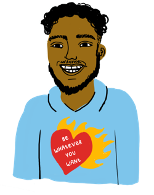 and educational to talk about gender and sexuality. Still we noticed that in conversations on these subjects, a lot of stereotyping and prejudiced thinking happens. This way of thinking can lead to (gender) inequality, social exclusion, (sexual) harassment and even (gender based) violence. Sexmatters has been brought to life to combat this, and since then has been fighting for and promoting more acceptance, equality and social inclusion.
and educational to talk about gender and sexuality. Still we noticed that in conversations on these subjects, a lot of stereotyping and prejudiced thinking happens. This way of thinking can lead to (gender) inequality, social exclusion, (sexual) harassment and even (gender based) violence. Sexmatters has been brought to life to combat this, and since then has been fighting for and promoting more acceptance, equality and social inclusion.
 Sexmatters’ target audience is young people and therefore focus on places where youth comes together. The goal of Sexmatters’ activities is to make young people aware of gender and sexual diversity, to teach them to respect people who are different from them, and to make them know their own wishes and boundaries. Our activities help lessen prejudice and stereotyping, and promote mutual understanding and acceptance.
Sexmatters’ target audience is young people and therefore focus on places where youth comes together. The goal of Sexmatters’ activities is to make young people aware of gender and sexual diversity, to teach them to respect people who are different from them, and to make them know their own wishes and boundaries. Our activities help lessen prejudice and stereotyping, and promote mutual understanding and acceptance.
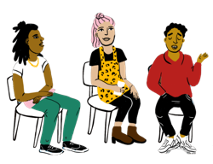 Sexmatters gives workshops and training aimed at young people and adults who work with them, like teachers and social workers. Next to that we keep a blog with a diverse team of bloggers, who write about their real life experiences with our main subjects and anything that surrounds those.
Sexmatters gives workshops and training aimed at young people and adults who work with them, like teachers and social workers. Next to that we keep a blog with a diverse team of bloggers, who write about their real life experiences with our main subjects and anything that surrounds those. 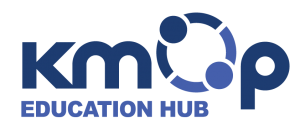 KMOP EDUCATION AND INNOVATION HUB is a Greek non-profit organisation, founded in 2006, aiming to improve the educational opportunities and subsequently the labour market integration, the social mobilisation and the inclusion of disadvantaged population. Aligned with the Sustainable Development Goals for inclusive, equitable quality education and inclusive growth for all, Social Policy Academy develops innovative educational services and solutions for the education and lifelong learning of its beneficiaries, using state-of-the-art tools. In parallel, it conducts studies and surveys related to the labour market needs and their link to education.
KMOP EDUCATION AND INNOVATION HUB is a Greek non-profit organisation, founded in 2006, aiming to improve the educational opportunities and subsequently the labour market integration, the social mobilisation and the inclusion of disadvantaged population. Aligned with the Sustainable Development Goals for inclusive, equitable quality education and inclusive growth for all, Social Policy Academy develops innovative educational services and solutions for the education and lifelong learning of its beneficiaries, using state-of-the-art tools. In parallel, it conducts studies and surveys related to the labour market needs and their link to education.The main fields of Activity of SPAc are the following:
• Cooperation with Higher Education Institutions (HEIs) for the development of lifelong learning programs for marginalised and vulnerable groups;
• Studies related to the educational needs and the market needs for people in disadvantaged groups;
• Design and development of educational tools tailor-made to vulnerable persons’ needs, such as people with disabilities and mental health disorders;
• Organisation of seminars and conferences
• Participation in national, European and international projects related to the above-mentioned fields.
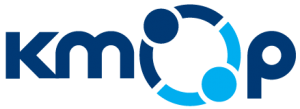 KMOP Skopje is a civil society organization, which has been registered as a local NGO and works autonomously, with the mandate of capitalizing on KMOP’s background and track record for the benefit of the vulnerable groups of the country, including young people at grassroots level from disadvantaged social backgrounds. Our goal is to be actively engaged in the social welfare system of North Macedonia as much as possible and contribute to the relief of various vulnerable groups by trying to design innovative and effective solutions to some of the problems that the country currently faces, making local communities more resilient. KMOP Skopje through comprehensive analysis, sustainable project activities and its direct involvement with local communities is continuously making efforts for tackling different problems, which are arising from various systematic policy shortcomings and are affecting individuals from disadvantaged background on a daily basis.
Τhe areas of specialisation of KMOP Skopje include the following:
• Social Inclusion of Disadvantaged Persons
• Education (including school Education and Adult Education)
• Civil Society Development
• Youth Participation
KMOP Skopje has experience in working with disadvantaged and marginalised groups such as the Roma community, disadvantaged youth and youth with migrant background, NEETs, early school leavers, low-skilled and unemployed people. Furthermore, KMOP Skopje has addressed important problems through its projects related to engaging youth in green economy activities, to the exclusion from the labour market and promotion of non-discrimination and intercultural dialogue. It has supported marginalised populations in the country facilitating their entrance to the labour market and promoting thus their social inclusion by utilising social mentoring.
KMOP Skopje is a civil society organization, which has been registered as a local NGO and works autonomously, with the mandate of capitalizing on KMOP’s background and track record for the benefit of the vulnerable groups of the country, including young people at grassroots level from disadvantaged social backgrounds. Our goal is to be actively engaged in the social welfare system of North Macedonia as much as possible and contribute to the relief of various vulnerable groups by trying to design innovative and effective solutions to some of the problems that the country currently faces, making local communities more resilient. KMOP Skopje through comprehensive analysis, sustainable project activities and its direct involvement with local communities is continuously making efforts for tackling different problems, which are arising from various systematic policy shortcomings and are affecting individuals from disadvantaged background on a daily basis.
Τhe areas of specialisation of KMOP Skopje include the following:
• Social Inclusion of Disadvantaged Persons
• Education (including school Education and Adult Education)
• Civil Society Development
• Youth Participation
KMOP Skopje has experience in working with disadvantaged and marginalised groups such as the Roma community, disadvantaged youth and youth with migrant background, NEETs, early school leavers, low-skilled and unemployed people. Furthermore, KMOP Skopje has addressed important problems through its projects related to engaging youth in green economy activities, to the exclusion from the labour market and promotion of non-discrimination and intercultural dialogue. It has supported marginalised populations in the country facilitating their entrance to the labour market and promoting thus their social inclusion by utilising social mentoring.
